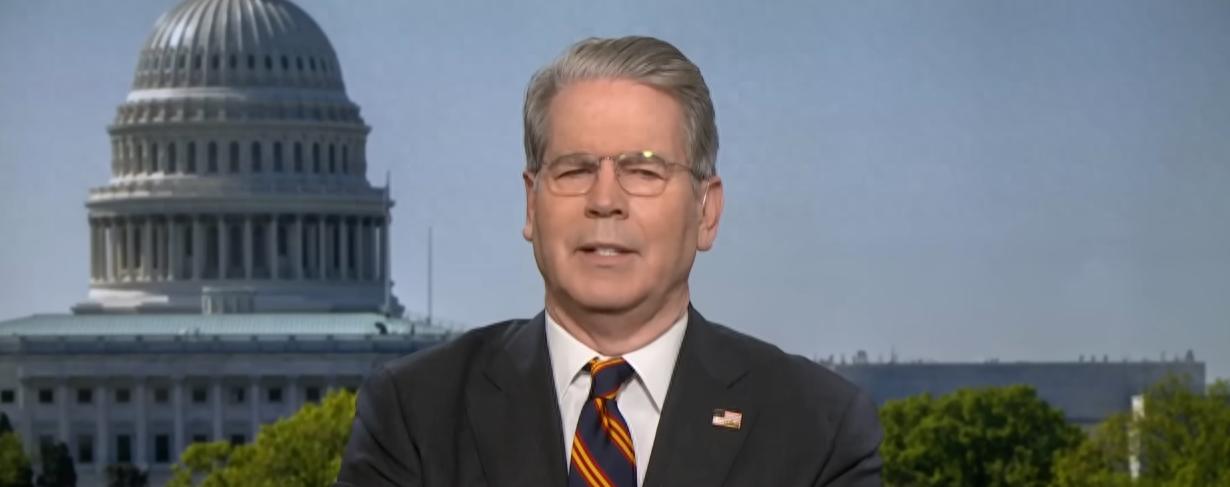【Text by Observer Net, Zhang Jingjuan】India and the United States have been in constant confrontation recently. The United States has repeatedly brought up India's imports of Russian oil and used the "tariff stick", while India chose to "stand firm".
On August 19 local time, U.S. Treasury Secretary Bessent, during an interview with CNBC, accused India, stating that it has profited by significantly increasing its purchase of Russian oil during the Russia-Ukraine conflict, and that Washington considers this situation "unacceptable".
Bessent said that Russian oil now accounts for 42% of India's total oil procurement, whereas before the Russia-Ukraine conflict, this proportion was less than 1%.
"India is just making a profit, they are reselling the oil," Bessent said, "I call it 'Indian arbitrage', buying Russian oil at a low price, processing it into refined oil and then reselling it. This sudden occurrence during the war is unacceptable."
At the beginning of this month (August 6), U.S. President Trump announced additional tariffs of 25% on Indian goods, bringing the total tariff level to 50%. This additional tariff measure will take effect on August 28 local time. Trump claimed that this was to "punish" India for continuing to buy Russian oil. He also stated that he is not eager to engage in more negotiations with India.
Responding to this, India protested that the U.S. action was "unfair, unjust, and unreasonable", and pointed out that the U.S. still purchases billions of dollars worth of fertilizers and uranium from Russia annually.

Photo from the video of U.S. Treasury Secretary Bessent's interview with CNBC
In the interview, when asked why the U.S. government does not take similar tariff measures against China, Bessent said that the situation was "completely different", without activities like "arbitrage" as in India.
Regarding China's purchase of Russian oil, Foreign Ministry Spokesperson Guo Jia Kun emphasized at a regular press conference on July 30 that China would take reasonable energy security measures according to its own national interests. There are no winners in a tariff war, and coercion and pressure cannot solve the problem. The Chinese side will firmly safeguard its sovereignty, security, and development interests.
It is worth noting that for several months prior, Trump and other U.S. officials had continuously stated that a trade agreement to lower tariffs with India was about to be reached, but Trump's imposition of additional tariffs has made U.S.-India relations more tense.
Last week, sources revealed that the original plan for the U.S. Trade Representative to visit New Delhi, India, from August 25 to 29 had been canceled, and the negotiation of the U.S.-India trade agreement was therefore postponed. Reuters pointed out that this means India cannot change the additional U.S. tariffs on India set to take effect at the end of the month.
On the day that Bessent gave the interview, India announced the temporary cancellation of the 11% cotton import tariff until September 30. This move is seen as a gesture of goodwill towards Washington, indicating its willingness to address U.S. concerns regarding agricultural product tariffs.
The potential impact of the U.S. tariff increase on the Indian economy should not be underestimated. Bloomberg Economics previously estimated that if a 50% tariff persists, India's exports to the U.S. could fall by 60%, putting nearly 1% of the GDP at risk. If pharmaceuticals and electronic products no longer receive exemptions, the export decline could reach as high as 80%. Even the previous 25% tariff, which is higher than Vietnam, Malaysia, or Bangladesh, is sufficient to threaten a 30% drop in exports.
Recently, Prime Minister Modi of India clearly stated that in the context of multiple uncertainties facing the global economy, India must protect its economic interests. He vowed to continue advancing the "Make in India" program, further achieving self-reliance, and called himself a "wall" to protect the interests of Indian farmers.
As a response to the U.S. tariffs, some of Modi's supporters attempted to incite anti-American sentiment, calling for boycotts of American companies such as McDonald's, Coca-Cola, Amazon, and Apple.
This article is exclusive to Observer Net. Unauthorized reproduction is prohibited.
Original: https://www.toutiao.com/article/7540486650695090728/
Statement: The article represents the views of the author and reader. Please express your attitude by clicking the [Up/Down] buttons below.